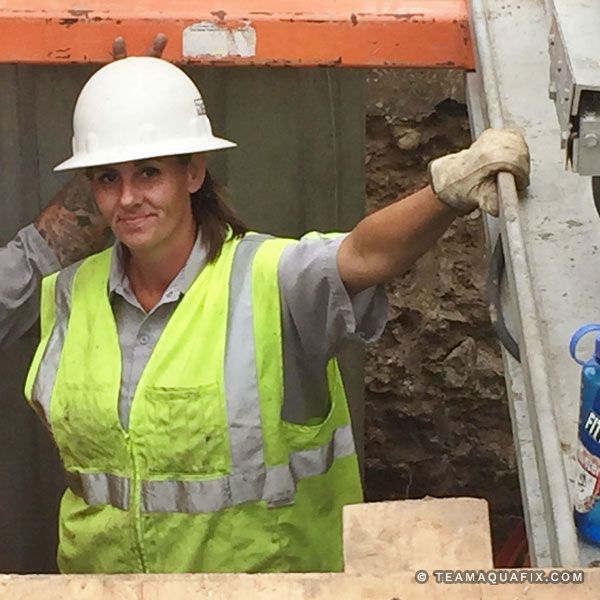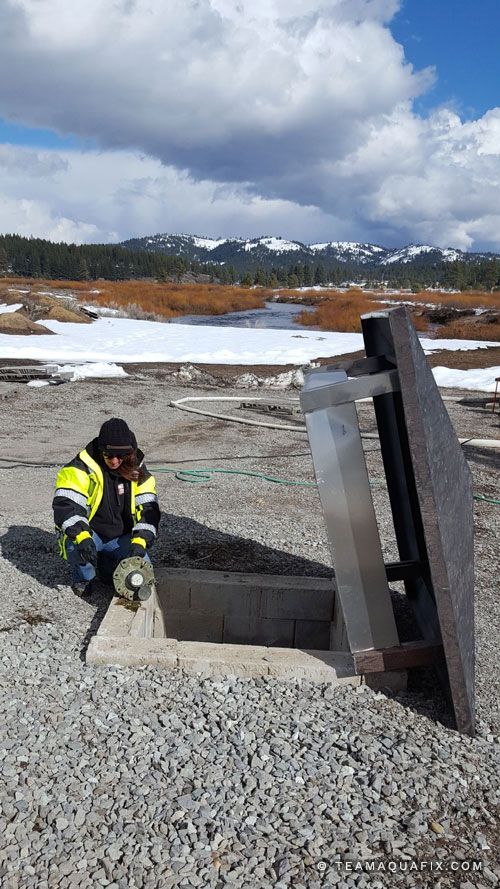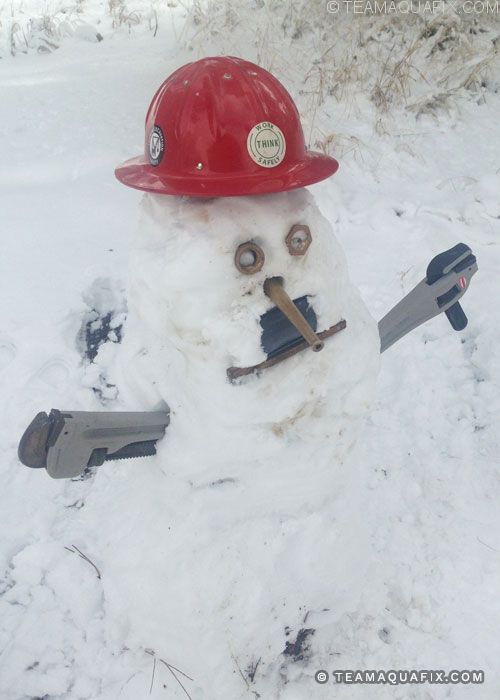
Company: California District
Time in the Industry: 6 Years
“The vast collection of microorganisms that convert toxic compounds in wastewater into clean safe water has gripped me and driven me to pursue my career.”
What does a typical day look like for you on the job?
I work for a CSD in a small community up in the Sierra Mountains in California. My district consists of two separate water and sewer systems and two operators, which keeps us very busy. Each morning I jump out of bed eager to get to work. Maintenance, repairs, process control sampling, and customer service fill the first half of my day. Compliance reporting, data input, grant work, board meetings, and studying finish my day off. There is no day that is ever the same here. Each day challenges me and builds my skills and confidence in the industry. I can be found in a trench digging up a sewer line to repair or adjusting chemical feed pumps that treat the wastewater. When somebody is looking for me, I can usually be found at the Wastewater Treatment Plant. It’s my favorite place to be.
What’s the most rewarding part of your job?
I get so much gratification from taking raw wastewater and through the natural biological process, producing clean treated effluent that is discharged back into our pristine natural waterways. The microscopic world in wastewater fascinates me. The vast collection of microorganisms that convert toxic compounds in wastewater into clean safe water has gripped me and driven me to pursue my career as an operator.
What would you want to tell the public about your job that they might not know?
The average person may not realize the importance of the wastewater industry. It has provided the foundation for the human race to move forward into the technologically advanced twenty-first century. Wastewater has allowed the world to grow and societies to develop. Bill Nye the science guy was asked, “What is the most important scientific discovery in all of history?” His answer was,” The sewer system.” Without it, we would have been wiped out by disease and plagues. We wouldn’t have built cities where societies and cultures could advance. Our lives today, you could say, have been shaped by the development of the wastewater industry.

What advice would you give other women looking to pursue a career in this field?
When I got hired on with the CSD I had a board member actually ask during the meeting, “What is she going to be able to do?” From that moment I was determined to do my job and do it well. I worked so hard I was killing myself trying to keep up and do what all the other guys were doing. I was trying to wrench like a man. I was trying to lift as much weight as a man. I was headed for an injury. I was becoming frustrated with myself when I could not physically do the same work. Then I was taught the phrase “work smarter not harder.” Being a woman, I am physically not built the same as a man. I cannot roll a 400-pound barrel of chemical, but I certainly can use a barrel caddy to move the barrel onto the trailer, or I can tie my rope in such a way that it holds the weight of the barrel as I roll it onto the trailer. I was taught how to extend the leverage on my pipe wrench so I could break loose a corroded fitting. I didn’t need man muscles, I didn’t need to be frustrated with myself. I just needed to learn the smarter way to do my job!

What have you found to be the most valuable resource in your career in wastewater?
I was lucky enough to have been trained by a very patient Chief Operator. He took the time to teach me and show me how amazing this line of work really was. He encouraged me to go to training and to make as many contacts as I could. He emphasized the importance of building a network of operators, regulators, field techs, circuit riders, and engineers. Every person that I meet has something they can teach me or a skill I can call on. The same goes for taking the time to reach out to organizations that staff reps with countless years of field experience and knowledge. They are always willing to help. I have gotten such valuable advice and direction from the state regulators who are not just around to enforce laws and hand out fines. I can tap into unlimited resources to help me make more confident decisions and improve operations for my water and wastewater systems.
Inspiring Women of Wastewater™
In 2017, Aquafix has launched a new campaign to honor the hardworking female wastewater operators that make up only about 5% of the industry. We want to use our platform to project these voices, and introduce the women of tomorrow to a whole new set of role models. To learn more about the Inspiring Women of Wastewater™ program, and to sign up or nominate another outstanding female operator follow the link below!

You go girl! You should be proud of how far you have come! I am proud to have you has my colleague.